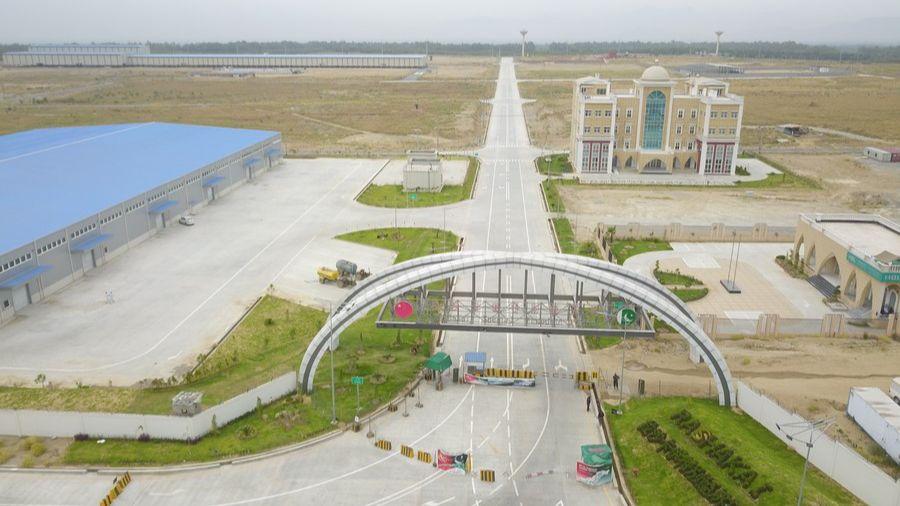by Raheela Nazir
ISLAMABAD, June 30 (Xinhua) -- As the China-Pakistan Economic Corridor (CPEC) entered the second phase, a Pakistani expert said that Pakistan and China are all set to pool efforts to reinvigorate and upgrade CPEC for socio-economic development, taking the all-weather strategic cooperative partnership to new heights.
CPEC, a flagship project of the China-proposed Belt and Road Initiative (BRI), is one-of-a-kind to transform the economic landscape and bring opportunities to the South Asian country, said Hassan Daud Butt, former project director of CPEC at the then Ministry of Planning, Development and Reforms, and senior advisor at the China Study Center of the Sustainable Development Policy Institute, an Islamabad-based think tank.
Back in 2013, Butt said Pakistan has two major issues, including energy shortages and lack of robust road network, resulting in slowing down of the national economy by almost 3 percent, adding that with the completion of multiple energy and transport infrastructure projects under the first phase of CPEC, Pakistan has achieved significant economic gains.
"Energy is one of the key factors required for industrial development. We have that sorted out during the initial phase ... Also, with improved road infrastructure, the distances between Pakistani cities have reduced in terms of distance and time. Many rural markets, especially agriculture markets, are being connected to the cities and main areas," he said.
Besides that, Pakistan's exports to China have increased many folds over the last decade, he said, adding that the establishment of Gwadar port in the country's southwest Balochistan province has improved Pakistan's blue economy and enhanced regional connectivity and beyond.
In the next phase, Butt said that new corridors of growth, livelihood, innovation, green development, and inclusivity are being developed as part of enhanced cooperation to promote high-quality construction of CPEC.
Commenting on the potential areas of cooperation, he said that Pakistan would focus on the gradation of the Karakoram Highway, a robust railway system through the Main Line-1 project, as well as various important sectors, including agriculture, information and technology, energy, mining, and tourism, will be developed with Chinese assistance and experience.
"We want to move on step by step. We have done well in phase one. We will do better in phase two. The next phase demands out-of-box solutions so that we can have more sustainable pragmatic development of our country," the expert added.
Talking about China's vision of promoting green development, Butt underlined that the world is under a lot of stress owing to climate change, saying Pakistan and China are looking for an eco-friendly, sustainable model of development while protecting the environment and reducing carbon footprints.
He said China is becoming the leading exporter of electric vehicles, lithium batteries and photovoltaic products, and the affordability and durability of these products are phenomenal, helping countries around the globe towards green transition.
With a growing middle-class population, Pakistan can be one of the biggest markets for electric vehicles if proper infrastructure and charging stations are set up, he said, adding that through joint ventures, both countries can collaborate to manufacture electric vehicles in Pakistan using Chinese technologies, materials, and other resources.
Launched in 2013, the CPEC, a flagship project of BRI, is a corridor linking Gwadar Port in southwest Pakistan's Balochistan province with Kashgar in Northwest China's Xinjiang Uygur Autonomous Region, which highlights energy, transport, and industrial cooperation in the first phase, while the new phase expands to the fields of agriculture and livelihood.




 A single purchase
A single purchase









